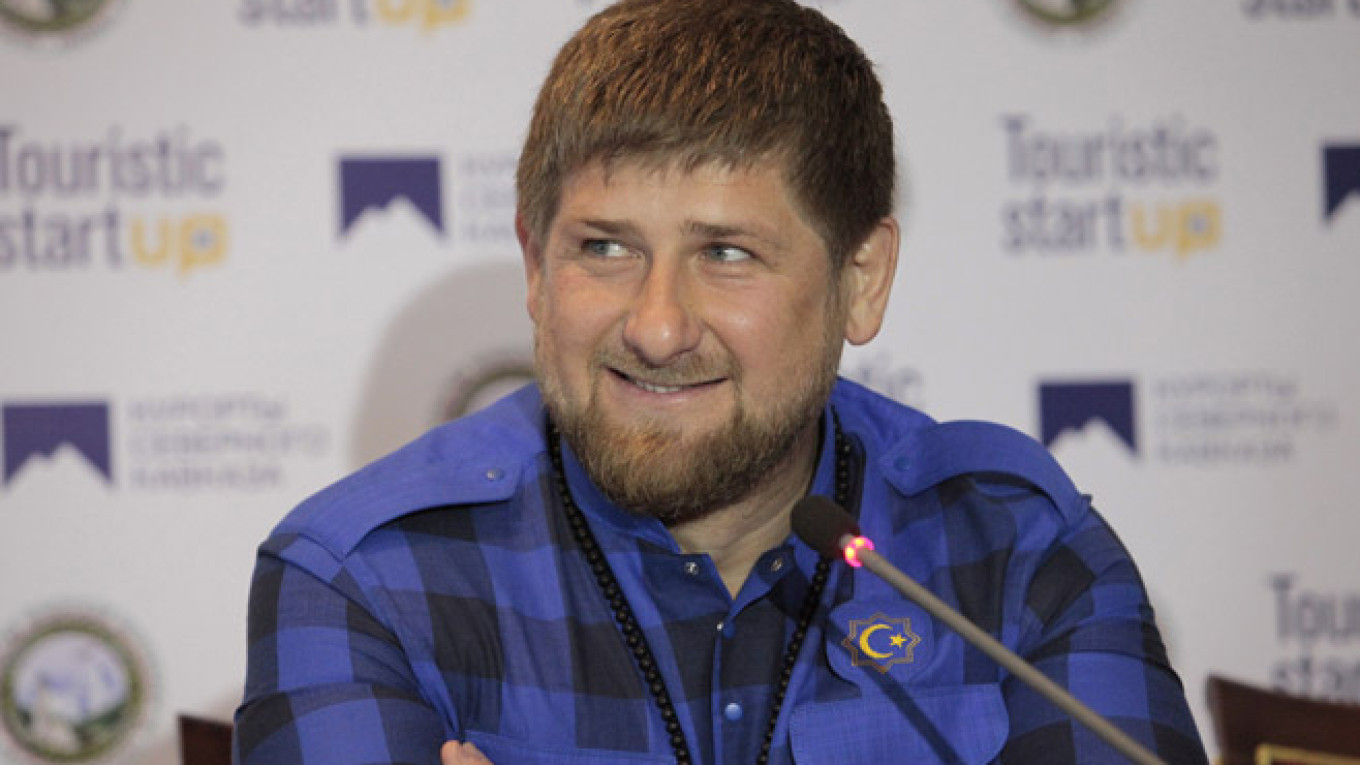Amid deadly clashes between pro-Russian separatists and Ukrainian security forces in eastern Ukraine, reports that militants from the Russian republic of Chechnya have joined the insurgents have been buzzing on Russian social media for weeks.
As videos and photos purportedly showing Chechen militants in Ukraine emerged on the web, their presence — which has not been confirmed by Russian state organs — has garnered vast public attention, both in Russia and abroad.
In Russia, this attention is attributable, in part, to the psychological associations people have toward Chechens, even years after the end of the Chechen wars, according to analysts.
"Both Chechen wars marked the Russian collective imagination," said Ivan Sukhov, a Moscow journalist specialized on Caucasus issues. "It was a truly dramatic story, and this trauma remains in Russian society. This is why Chechen fighters gain immediate resonance with the public."
Chechen separatists and Islamic radicals, who waged two bloody wars against Moscow and have taken responsibility for a number of terrorist attacks throughout Russia over the past two decades, have forged a reputation as fierce fighters.
Chechen militants who struck in Moscow and other Russian cities under the leadership of Doku Umarov, Russia's most wanted man who was killed earlier this year, have been "wheeled around to breed fear, to draw attention," said Tanya Lokshina, Russia program director at Human Rights Watch.
Forces run by pro-Moscow Chechen leader Ramzan Kadyrov have also become a notoriously fearsome group routinely associated over the past decade with demonstrative violence, torture and extrajudicial killings.
On Wednesday, Kadyrov denied that his men were involved in the violence in Ukraine, though he conceded that there could be maverick Chechen volunteers among the separatist insurgents there.
"There are 3 million Chechens and two-thirds of them live outside the republic, including in the West," Kadyrov wrote on Instagram. "We cannot and should not know where each one of them goes."
But the Russian public's interest in reports on Chechen militants does not only stem from their reputation as ruthless combatants, said Alexei Makarkin, deputy director of the Moscow-based think tank Center for Political Technologies.
"Russians' attitudes toward Chechens have evolved in the last few decades," Makarkin said. "During the Chechen wars, Chechens fought against Russia. With Kadyrov in power now, Chechens are viewed as being on the Russians' side, and for those who support the cause of the pro-Russian separatists in eastern Ukraine, reports of Chechen fighters are perceived as good news."
Makarkin said that Kadyrov's close ties to President Vladimir Putin, who has supported the Chechen leader since his accession to power in 2007, have led pro-Russian separatists and their supporters to believe Russia is taking an active part in fighting the Ukrainian security forces.
Lokshina, who was in eastern Ukraine earlier this week, said locals identify anyone among the pro-Russian separatists with a? "fierce appearance and tanned skin " as Chechens.
"The population jumps to conclusions about the identity of militants simply based on appearances," Lokshina said, suggesting that people there associate militants with Chechnya. "They call them Chechens and do not even consider that they could come from other parts of the Caucasus."
Contact the author at [email protected]
A Message from The Moscow Times:
Dear readers,
We are facing unprecedented challenges. Russia's Prosecutor General's Office has designated The Moscow Times as an "undesirable" organization, criminalizing our work and putting our staff at risk of prosecution. This follows our earlier unjust labeling as a "foreign agent."
These actions are direct attempts to silence independent journalism in Russia. The authorities claim our work "discredits the decisions of the Russian leadership." We see things differently: we strive to provide accurate, unbiased reporting on Russia.
We, the journalists of The Moscow Times, refuse to be silenced. But to continue our work, we need your help.
Your support, no matter how small, makes a world of difference. If you can, please support us monthly starting from just $2. It's quick to set up, and every contribution makes a significant impact.
By supporting The Moscow Times, you're defending open, independent journalism in the face of repression. Thank you for standing with us.
Remind me later.


